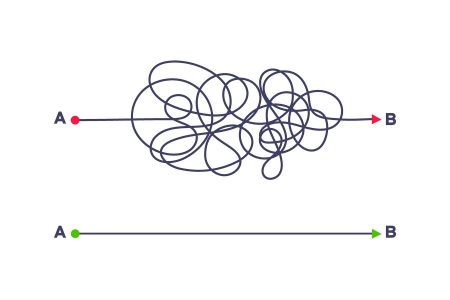Rafael Alvarez, the self-proclaimed “Magician” of tax preparation, has seen his illusions shattered by a guilty plea to charges of defrauding the U.S. government of a staggering $145 million. Operating ATAX New York, a high-volume tax preparation business in the Bronx, Alvarez perpetrated a sophisticated scheme spanning a decade, from 2010 to 2020. This intricate web of deceit involved the fabrication of various deductions, expenses, and credits on approximately 90,000 tax returns, effectively erasing his clients’ tax liabilities and maximizing their refunds. While his clients may have marveled at their seemingly magical windfalls, the reality was far less enchanting: Alvarez’s sleight of hand was nothing more than a calculated criminal enterprise that deprived the IRS of substantial revenue.
Alvarez’s methods were as diverse as they were deceptive. He and his employees, complicit in the scheme, conjured phantom itemized deductions for medical expenses, charitable contributions, and job-related costs. Capital losses materialized out of thin air, business expenses were inflated, and fraudulent tax credits, including residential energy credits, were claimed without merit. Rental properties were fabricated for clients who had never owned such assets, while actual rental income was understated and expenses for repairs, supplies, and utilities grossly exaggerated. Moving expenses, tuition costs, and even the filing status of taxpayers were manipulated to further minimize tax obligations and maximize refunds. The scheme relied on fabrications, with many entries completely unsupported by any documentation, relying solely on Alvarez’s deceptive artistry.
The elaborate fraud extended beyond Alvarez himself, ensnaring his employees in its web. Fully aware of the fabricated information being inserted into tax returns, they passively enabled the scheme by failing to correct the inaccuracies, even perpetuating them from year to year. Court documents suggest that Alvarez strategically recruited employees without legal status in the United States, exploiting their vulnerability by threatening to report them to authorities if they questioned his practices. This coercive tactic ensured their silence and further solidified the conspiracy.
The unraveling of Alvarez’s fraudulent empire began with an indictment in April 2024, which ultimately led to a superseding information and a guilty plea in December 2024. This signifies Alvarez’s acceptance of responsibility and his waiver of the right to an indictment. Facing a potential eight-year prison sentence and a scheduled sentencing date of April 11, 2025, Alvarez has agreed to pay $145 million in restitution to the IRS and forfeit over $11.84 million in ill-gotten gains. The investigation, a collaborative effort involving the IRS Criminal Investigation, the FBI, and the Treasury Inspector General for Tax Administration (TIGTA), exposed the depth and breadth of Alvarez’s fraudulent activities.
The case serves as a stark reminder of the consequences of tax fraud, both for perpetrators and the public. Edward Y. Kim, the acting U.S. Attorney for the Southern District of New York, emphasized the gravity of Alvarez’s crimes, highlighting the immense loss of tax revenue and the need for vigorous prosecution of such offenses. While the IRS Criminal Investigation typically handles fraudulent tax return preparation investigations, TIGTA focuses on broader tax preparer misconduct, such as identity theft, unauthorized disclosure of tax information, and misrepresentation of qualifications. Taxpayers can report suspected preparer misconduct to either agency, utilizing Form 14157-A for cases where their returns or refunds were directly affected.
This case underscores the importance of taxpayer vigilance. The IRS emphasizes that taxpayers are ultimately responsible for the accuracy of their tax returns, signing them under penalty of perjury. It is crucial to understand the contents of your return and question anything that seems suspicious. If a tax preparer offers a deal that seems too good to be true, it likely is. Choosing a qualified and trustworthy tax professional is paramount to ensuring compliance with tax laws and avoiding the pitfalls of fraudulent schemes like Alvarez’s. While the fate of Alvarez’s clients remains unclear, this case serves as a cautionary tale for all taxpayers: due diligence and a healthy skepticism can prevent entanglement in costly and potentially criminal tax schemes.










